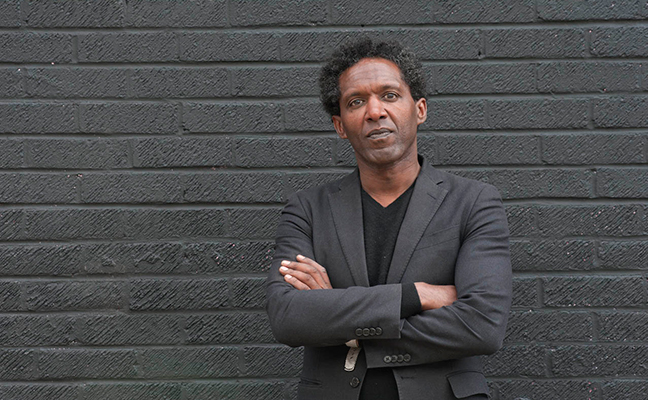Here’s an extract of the latest in-depth interview on the High Profiles website, with Greenbelt trustee Martin Wroe talking to poet Lemn Sissay at Greenbelt 2016 …
As a teenager in the care system, you’ve said that poetry became a kind of refuge, a way of translating the world.
This is why my poems are like my family. Through memory, family is consistently translating itself in the world, and arguing about the meaning of words, or a symbol or an image, and I realised when I left care that nobody I knew had known me for longer than a year. So, it meant that memory just fell through the sieve – nothing could hold – because to have a good memory of your life in family you have to have two people to at least argue about it. And I realised the depth of that by not having it, and I would not wish that on my worst enemy. You are supposed to learn about that as people die as you get older, but I knew about that at 18.
Family’s like a game of squash: you hit the ball and it comes back at all kinds of awkward angles [and that gives you exercise]. But when I left care the image that I had was of hitting the ball and it just continuing to fly out and my muscles wasting and there being nothing I could do about that. So, I was fully aware of what I didn’t have and I was fully aware that those other 18-year-olds around me hadn’t as yet got to a point where they could understand what I didn’t have. But I realised what I didn’t have, and the vastness of it. It’s not that I think that families are good, it’s that I just wanted someone to argue with.
It was like you didn’t have a witness?
Thank you! That’s it! I didn’t have a witness. In the children’s homes all the people would do was try to solve you as a problem, do you know what I mean? ‘Right, what are we doing with him now? He needs fostering, he needs this, he needs that.’ And I was like: No, that’s not it. You weren’t here a year ago, were you? So, you’re trying to solve me now and I don’t need solving, I need seeing.
You are mesmerising when you perform your poetry – you kind of animate your own words. What happens to a poem when you perform it?
The way to read poetry on stage, always for me, is to inhabit as much as you can the time that you were writing the poetry. In other words, do it like you believe it.
So, I’m not intimidated by an audience. The beauty of being able to share a poem with an audience is that it’s like being able to share your greatest gift. How would I be intimidated by an audience when I’m with something which is just so important to me that it is beyond any acceptance or rejection of any person ever? Now, that can be a bit nauseating for an audience, because I’m in my own zone; but I’m afraid that’s who I am and that’s what I’ve done for some 30 years.
You know, my poems are my friends and my family and they talk back to me and they have personalities of their own and every time I read them they’re slightly different for me, so it’s like the first time every time.
Does a poem ever say, ‘I don’t want to be like this’?
Oh God, are you kidding me? Yes, they do. They can be angry with me for not giving them the care and the attention, some of them, that they deserve.
I’m saying all of this out loud, aren’t I, I really am – but that’s the truth!
The famous maxim is that a poem is never finished, it’s only ever abandoned.
Well, yes, it is – but so’s everything.
ENDS
This is an extract of a full, in-depth interview on the High Profiles website here.
The photo is © Andrew Firth


